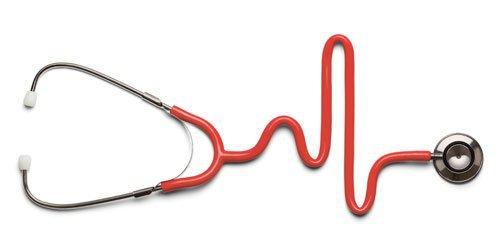Online Courses for Nurses Looking to Advance their Career

Most professions require constant learning for people to advance in their careers, and nursing is no exception. It is safe to say that while nursing schools prepare students for real world situations, they do not teach everything. In this day and age, the medical and healthcare industries are constantly evolving due to technology and research.
Fortunately, the digital age provides convenient options for nurses looking to pursue
further education. With a variety of online programs from various colleges, universities,
and even online businesses available, nurses may improve their  quality of care and patient outcomes, which could lead to career advancement. Have
a look at some of the essential nursing skills you can learn online below.
quality of care and patient outcomes, which could lead to career advancement. Have
a look at some of the essential nursing skills you can learn online below.
Communication Skills
Nurses who aspire to be leaders someday should be able to communicate effectively. As a nurse, it is the nature of your job to interact with different kinds of people, from your patients and their families to other healthcare professionals. It’s important then to identify various communication strategies that will improve your quality of care.
Although written a few years back, Kourkouta and Papathanasiou’s advice on Communication in Nursing Practice still very much applies. Published on Materia Socio Medica in 2014, the duo wrote, “The best expertise training and continuing education of nurses in matters relating to the proper technique of communication will enable them to respond adequately and humanely to the expectations of patients.”
There are various online learning resources nurses can access to hone their communication skills. Some courses are short, free, and efficient, which may be most convenient for nurses with busy schedules. For example, EdX.org has several free communication courses that nurses can learn from, such as Communicating Effectively: How to Inspire and Convince and Communication Skills for Bridging Divides. Although these courses are aimed at professionals in general, nurses can still apply these lessons to everyday scenarios.
Critical Thinking
Many nursing errors are caused by a lack of critical thinking. This refers to the
ability to identify a problem and determine the best or most effective solution. It
is a skill that is important in times of emergencies, which healthcare personnel often
face. Malaysian researchers recently found a link between nurses’ critical thinking skills
and decision-making, which proves that critical thinking does influence patient outcomes. Therefore,
continuously developing this skill falls under a nurse’s duty to provide quality care. 
Fortunately, it is a transferable skill that can be taught through effective mentorship and peer-to-peer support. Many online portals offer this subject as well, whether it is through online CE programs or medical forums. Nurses can also opt to review case studies online and put their thinking skills to the test. Nurse.com’s Improved Critical Thinking and Clinical Reasoning course is one example. The program lets nurses review results from key studies and examine strategies enumerated in the course. This online course is accredited and provides continuing education for the healthcare team.
RN-to-BSN
The nursing field offers a wide range of careers. There are various paths licensed
nurses can take, whether they are just starting their practice or are in the middle
of their nursing career. Registered nurses (RNs) having first finished Associate Degree in Nursing (ADN) programs or nursing diplomas at community college usually look to earn their Bachelor of Science in Nursing degree (BSN) when they are ready to take on greater responsibilities and broader roles in healthcare.
 There are many career options you can consider once you have your BSN, as was noted previously on Nightingale College’s Alternative Nursing Careers Beyond Bedside Care blog post. Moreover, thanks to modern technology, nurses can now obtain their BSN degrees through more convenient means. Virtual learning environments may prove to be a more
flexible and convenient option for registered nurses, as they can study for a degree
and practice their profession at the same time. They can also earn their BSNs much
faster than conventional methods, since RN to BSN programs usually last for just three semesters.
There are many career options you can consider once you have your BSN, as was noted previously on Nightingale College’s Alternative Nursing Careers Beyond Bedside Care blog post. Moreover, thanks to modern technology, nurses can now obtain their BSN degrees through more convenient means. Virtual learning environments may prove to be a more
flexible and convenient option for registered nurses, as they can study for a degree
and practice their profession at the same time. They can also earn their BSNs much
faster than conventional methods, since RN to BSN programs usually last for just three semesters.
If you are looking to hone certain skills that may be useful to your services, or study to advance your nursing career, rest assured there are online courses that can suit your needs.
Written by Rachel Davis

